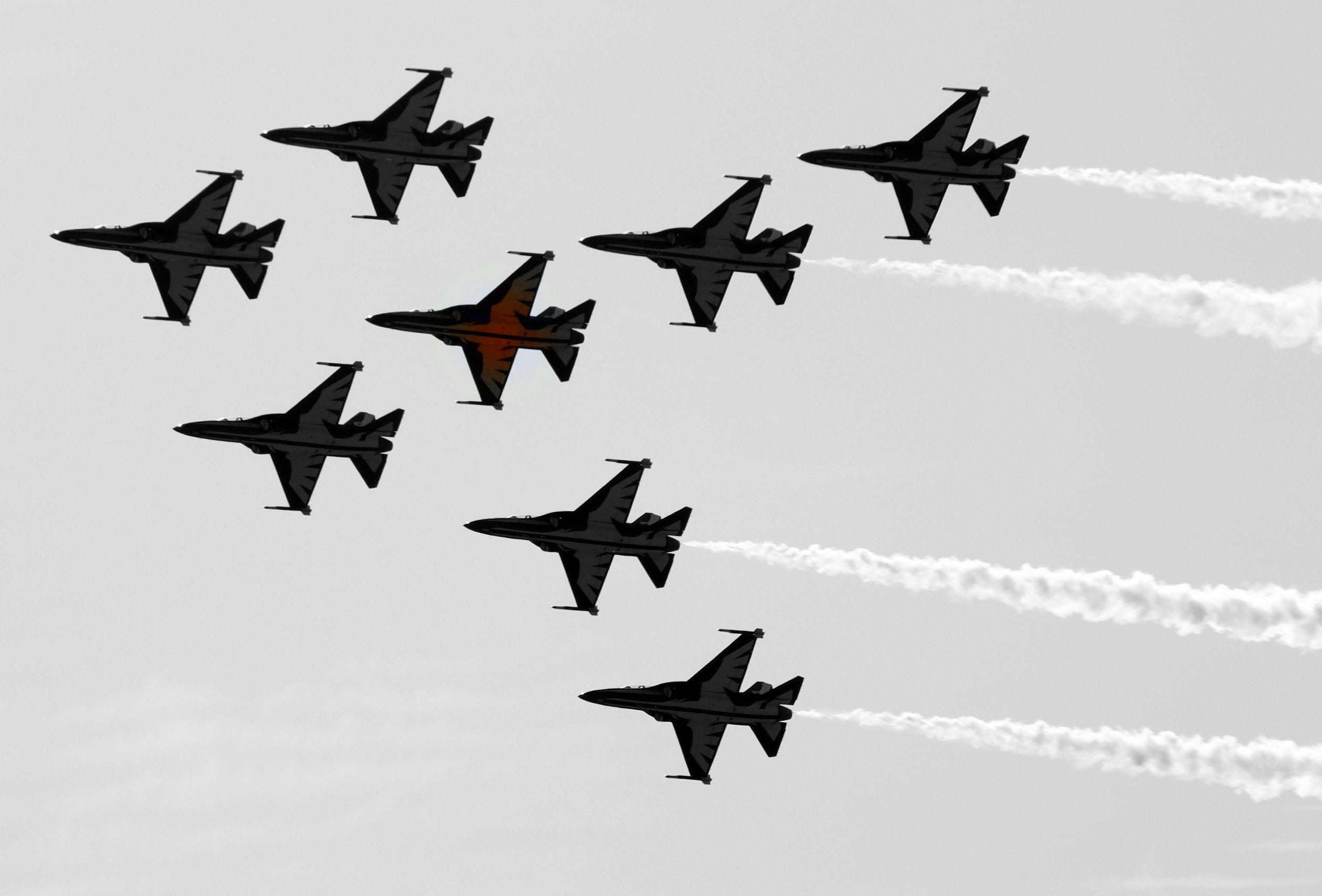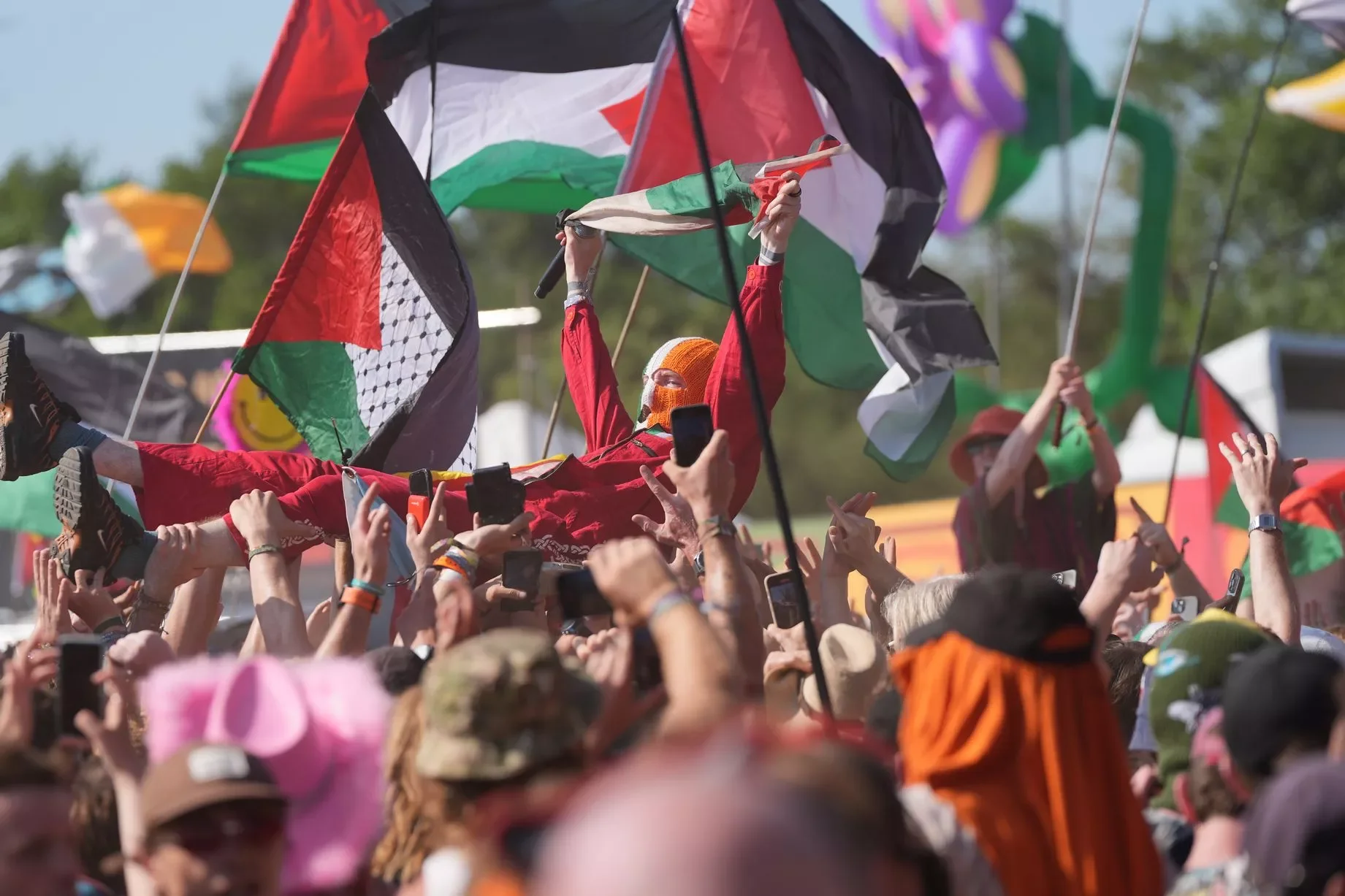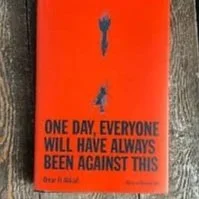As the polarised world continues to fragment, Palestine sits on a knife edge.
Famine is officially declared, Gaza is rubble and dust and, by conservative estimates, more than 62,000 people are dead, with over half of them women and children. An unknowable number of dead lie under the rubble and over 640,000 face starvation by the end of next month.
The atrocities done to the Palestinian people now require each of us to speak out and condemn the starvation of children in the name of Israel’s “war against Hamas”.
“Politicians have the capability to end this man-made disaster, but they won’t, because Israel is a “friend” to the West, a “stable” power in the region.”
A ‘Friend’ to the West
The powers within global geopolitics, the politicians, have the capability to end this man-made disaster, but they won’t, because Israel is a “friend” to the West, a “stable” power in the region.
Israel is located at the crossroads of Europe, Asia and Africa, bordering the Mediterranean and near the Suez Canal, which is one of the world’s most vital maritime trade routes. For the U.S. and Europe, having a reliable ally in the Middle East means a secure base in one of the most volatile and resource-rich, strategic regions in the world. For its’ military base, intelligence sharing, advanced technology, and being a “democracy” in a region that is caricatured as unstable, Israel is described by Western powers as their “indispensable ally”, with the United States providing $3.8 billion and the EU more than €650 million in (mostly military) aid annually.
How to Bring Peace to the Middle East?
The Middle East is one of the most seemingly intractable war zones in the world, the other two major ones having been the north of Ireland and South Africa. The lessons of the peace processes in Ireland and South Africa are instructive; the Middle East conflict cannot be resolved internally alone — the asymmetry is too stark, the imbalance of power too entrenched. Therefore, international engagement will be necessary.
“The Good Friday Agreement (1998) that brought peace to the north of Ireland was the culmination of centuries of resistance by the Irish, but also of sustained international engagement that changed the calculus of the conflict.”
— Image is of a mural depicting a scene on ‘Bloody Sunday’, January 1972, when the British Army shot 26 unarmed civilians, 14 of whom died, who were attending a Civil Rights march in Derry, north of Ireland.
The Good Friday Agreement (1998) that brought peace to the north of Ireland was the culmination of centuries of resistance by the Irish, but also of sustained international engagement that changed the calculus of the conflict. The United States provided political cover, while the European Union poured billions of euro into cross-border development programmes. In so doing, the international community offered guarantees that neither Unionists nor Republicans could provide for themselves, transforming stalemate into settlement.
Similarly, in South Africa, apartheid did not collapse solely because of domestic resistance, though the courage of the ANC, the Black Consciousness Movement, and countless grassroots organisers laid the foundation. It also fell because the world turned its attention on the atrocities happening there. The United Nations declared apartheid a crime against humanity in 1973. By the mid-1980s, sanctions and divestment campaigns had isolated Pretoria, and cultural boycotts — musicians refusing to play Sun City, academics shunning collaboration — cut the regime off from legitimacy. When Nelson Mandela emerged from prison in 1990, he did so into a world where the apartheid state had become a pariah.
“When Nelson Mandela emerged from prison in 1990, he did so into a world where the apartheid state had become a pariah.”
— Image is street art, depicting Nelson Mandela.
In both cases, international opinion mattered because it empowered moderates and weakened hardliners. It provided external guarantees, lent legitimacy to those negotiating, and imposed costs upon those clinging to old structures of oppression. Similarly, in this conflict, international guarantees will be essential for any settlement. Israelis and Palestinians alike will need confidence that promises will be upheld, and that is confidence that no domestic actor alone can provide.
But how can we rely upon international pressure, when the politicians in the West are not only disinterested in upsetting the status quo, but are actively supporting it with taxpayers’ dollars, euro and pounds?
A Major Shift
The difference this time, with Israel’s ongoing offensive against the Palestinians is that, for the first time ever perhaps, mainstream global public opinion has shifted. Thousands of Pro-Palestinian marches and demonstrations have taken place in all of the major cities in the world since October 2023, with millions of participants cumulatively. Crucially, younger generations in the West overwhelmingly sympathise with Palestinians, even if their governments don’t.
History teaches us that governments lag behind their publics, but they cannot lag forever. Apartheid South Africa was defended by Western leaders long after it had lost the moral argument. Israel still enjoys official Western protection, but its public support is eroding.
In addition, a survey by Hebrew University found nearly half of the Israeli Defence Forces reservists said that they had “negative emotions” toward the government’s handling of the war and hostage negotiations, with as many as 100,000 reservists failing to show up for duty.
“Israel still enjoys official Western protection, but its public support is eroding.”
While public protests and haranguing politicians directly will eventually impact policy, nearly two years into this “war”, they have so far failed to produce significant results. As crucial as public protest is, media bias, the disinterest in peaceful public marching compared to violent incursions higher up the newsfeed, means that if these events make the headlines it’s because it’s a quiet news day and even then, they are not taken as seriously as they might be.
And, as politicians muse the consequences of their inaction in terms of re-winning their elected seats, public support for the Israeli attacks plummets.
In vacuums of this sort, when elected officials don’t follow the hearts and minds of the people, the the zeitgeist shifts, and the mouthpiece, calling for justice and change, often comes from the culture through art. Apartheid South Africa saw this when a cultural boycott, where artists refused to perform, made global statements.
“At Coachella, Belfast rap trio, Kneecap, projected messages onto the stage screens reading: “Israel is committing genocide against the Palestinian people”, and “It is being enabled by the U.S. government who arm and fund Israel despite their war crimes.”
And the same is true of the Pro-Palestinian movement, today. Many artists withdrew from global festivals associated with Israeli-linked sponsors or ownership, including The Great Escape Festival in Brighton, UK, May 2024, the Sónar Festival in Barcelona, June 2025 and the Field Day Festival in London, May 2025. Even prior to the attacks of October 7, 2023, over 600 international musicians signed an open letter in 2021 including Roger Waters, Serj Tankian, Questlove, Julian Casablancas, and others, calling for a cultural boycott of Israel. And others have appeared on stages at music festivals holding the Palestinian flag.
At Coachella (US), Belfast rap trio, Kneecap, ignited a crowd of 100,000 people in a chant of “Free, Free Palestine” while they projected messages onto the stage screens reading: “Israel is committing genocide against the Palestinian people”, and “It is being enabled by the U.S. government who arm and fund Israel despite their war crimes.”
The backlash was swift and severe. Kneecap manager, Daniel Lambert said that the band had received death threats, describing them as “too severe to get into”. The establishment responded with calls for the group to have their visas revoked, to be dropped from other music festivals and in many cases their gigs were cancelled. In Glasgow, their set from the TRNSMT festival lineup (July 11 2025) was dropped due to “safety concerns raised by Police Scotland”, so the band announced a replacement gig at Glasgow’s O2 Academy for July 8, and it sold out in 30 seconds.
“The Irish have always stood with the oppressed. Gaza is no different. We know what it means to live under occupation, to have your language, your culture, your very being declared illegal. That’s why we’ll never be silent when Gaza is bombed. Our struggle is their struggle, and their struggle is ours.” — Mo Chara, Kneecap
From the stage, they have said: “The Irish have always stood with the oppressed. Gaza is no different. We know what it means to live under occupation, to have your language, your culture, your very being declared illegal. That’s why we’ll never be silent when Gaza is bombed. Our struggle is their struggle, and their struggle is ours.”
Efforts to silence Kneecap, grant revocations, festival censorship and even terrorism charges, are creating more publicity for the band and their cause. As they put it: “Since our statements at Coachella … we have faced a coordinated smear campaign… We are telling the truth, and our audience is growing. Those attacking us want to silence criticism … we will not stay silent.”
Their gigs, too, become acts of solidarity. Before audiences of tens of thousands, many of whom carried Palestinian flags, at Glastonbury, Rock en Seine and the Primavera Sound festivals, Kneecap waved Palestinian flags and dedicated songs to Gaza. When their set at Glastonbury was censored by the BBC (the state broadcasting television service in the UK), it generated more publicity. Because of the controversy, what would have ordinarily been an ‘underground’ act, saw Kneecap become a global name whose popularity has exploded and they have performed to sell out crowds around the world.
“Their gigs, too, become acts of solidarity. Before audiences of tens of thousands, many of whom carried Palestinian flags, at Glastonbury, Rock en Seine and the Primavera Sound festivals, Kneecap waved Palestinian flags and dedicated songs to Gaza.”
— Image is of Kneecap’s DJ Próvai, crowd surfing at one of their gigs.
Protest Art
There is a long history of protest art and artists speaking truth to power: Bob Dylan, Nina Simone, Frida Kahlo, Diego Rivera, Toni Morrison, James Baldwin, Langston Hughes, Bertolt Brecht, Augusto Boal, etc.
Writer James Baldwin said (paraphrased), “Artists are here to disturb the peace, to make people see and feel the truths that are uncomfortable, to open their eyes to what they would rather not see.”
UK band, The Special AKA, released a song in 1984 called, ‘Free Nelson Mandela’, that became a hit around the world and was instrumental in energising public and political pressure, helping to end apartheid in South Africa.
Bob Dylan’s ‘Hurricane’, released in 1976, raised global public awareness about the wrongful conviction of black boxer, Rubin “Hurricane” Carter, for a triple murder in New Jersey in 1966. The song contributed to a climate of public pressure and scrutiny that made it politically and socially difficult to ignore the case. His conviction was overthrown in 1985, the judge citing “prosecutorial misconduct” and “racial bias” in the trial.
“The 1973 Bob Marley & The Wailers song, ‘Get Up, Stand Up’, that advocated for human rights and resistance against oppression, was sung at international protest movements.”
The 1973 Bob Marley & The Wailers song, ‘Get Up, Stand Up’, that advocated for human rights and resistance against oppression, was sung at international protest movements. The 1969 John Lennon song, ‘Give Peace a Chance’ became an anthem at anti-Vietnam War protests.
Protest art often reflects the mood of the zeitgeist long before the establishment catches up. And so it is, with the actions of the Israeli government and the IDF today. International opinion has shifted so radically that even before governments catch up with their electorates, the public demand for change is global and clear. From the grassroots level of society, the people whose taxes are being used to support a war machine in their name are demanding that the bombing and starvation and sniper fire on innocent civilians stops.
As the epoch of ‘power over’ and hierarchies ends, the power imbalance is being strained. That power imbalance is between people at the grassroots levels calling for justice and people at the upper echelons of power seeking to maintain the status quo. This power imbalance will collapse and, with it, the powerful will be exposed with blood on their hands. Meaning, that instead of establishing a fairer world, the West sought to take control of it and, if maintaining that control meant allowing the Israeli government to have free reign to starve thousands of Palestinian infants to death, then the Western governments said, so be it.
“Rules, conventions, morals, reality itself: all exist so long as their existence is convenient to the preservation of power. Otherwise, they… are expendable.”
— Author, Omar El Akkad
‘One Day, Everyone Will Have Always Been Against This’
In his searing, heartfelt, devastating book, ‘One Day, Everyone Will Have Always Been Against This’, Omar El Akkad outlines the damning moral depravity of Western liberal thought.
He says that “Western values” are upheld only when convenient to power and abandoned the moment they threaten established hierarchies. He shows how liberal ideals of freedom, democracy and human rights are invoked to justify violence abroad, yet denied to those suffering under Western-backed wars and occupations.
Through examples like Gaza, he highlights the hypocrisy of leaders and institutions who praise justice while enabling atrocities, and of media that sanitises mass death through euphemisms. For El Akkad, the hypocrisy is not accidental but structural. He says, the system was never meant to protect the vulnerable, instead it was only ever designed to preserve dominance, while offering the illusion that its ideals apply universally.
He said of the fragility of Western ethical norms, when they conflict with authority, “Rules, conventions, morals, reality itself: all exist so long as their existence is convenient to the preservation of power. Otherwise, they… are expendable.” This is exactly what we are seeing in Gaza now. In our name.
And, I agree with El Akkad, that in time, when it is no longer costly to do so, everyone will universally shun the war in Gaza as the ‘heinous war that no-one supported’.










